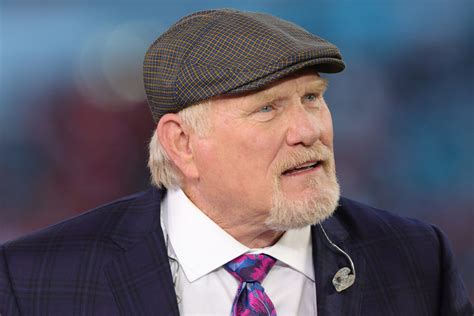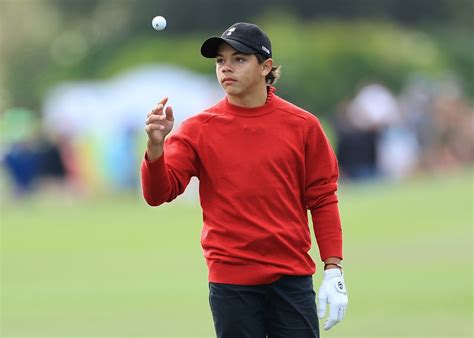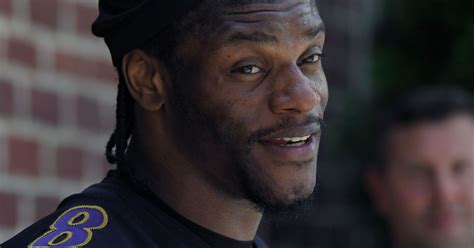
Terry Bradshaw’s future at Fox Sports is uncertain, sparking debate among fans and critics as Fox Sports faces scrutiny for its handling of the NFL commentator and broader concerns regarding the direction of its broadcasting team.
The future of Terry Bradshaw, a longtime fixture on Fox Sports’ NFL coverage, is reportedly in question, drawing mixed reactions from fans and industry analysts. The debate surrounding Bradshaw’s role comes amid wider criticism of Fox Sports’ broadcast strategy and talent management, specifically regarding the perceived shift in focus on entertainment over insightful analysis.
According to reports and widespread social media commentary, some viewers feel Bradshaw’s performance has declined, citing instances of rambling commentary and perceived lack of focus during broadcasts. “Some viewers feel Bradshaw’s performance has declined,” mirroring sentiments expressed across various online platforms and sports forums. These observations have intensified discussions about whether the 75-year-old Bradshaw, a four-time Super Bowl-winning quarterback, remains a valuable asset to the network’s NFL programming.
The criticism isn’t solely directed at Bradshaw. Fox Sports is facing a broader wave of scrutiny regarding the overall quality and direction of its NFL coverage. Some critics argue that the network is prioritizing entertainment value over in-depth football analysis, leading to a dilution of the broadcast’s intellectual rigor. “Fox Sports is facing a broader wave of scrutiny regarding the overall quality and direction of its NFL coverage,” a statement echoing the network’s efforts to engage a wider audience beyond traditional football fans.
This shift has prompted concerns among longtime viewers who value the expertise and insights provided by seasoned analysts. The debate underscores a growing tension within sports broadcasting: the balance between attracting casual viewers with engaging entertainment and catering to knowledgeable fans who demand sophisticated analysis.
Adding to the complexity is the financial aspect. Bradshaw is one of the highest-paid personalities at Fox Sports, and any decision regarding his future would have significant financial implications for the network. His departure would not only alter the on-air dynamic but also impact the network’s budget and potentially open the door for new talent acquisitions.
The discussion about Bradshaw’s future also touches upon the broader issue of ageism in sports broadcasting. While experience and longevity are often valued, there’s also pressure for networks to maintain a dynamic and relevant on-air presence. Balancing these competing factors is a challenge for Fox Sports as it navigates its talent strategy.
A representative for Fox Sports declined to comment on Bradshaw’s specific situation but emphasized the network’s commitment to delivering high-quality NFL coverage. “We are committed to providing our viewers with the best possible NFL experience, and we constantly evaluate our talent and programming to ensure we are meeting that goal,” the representative stated.
The controversy surrounding Bradshaw’s potential departure highlights the evolving landscape of sports broadcasting, where networks are increasingly focused on attracting a broad audience while maintaining credibility with die-hard fans. The decision regarding Bradshaw’s future will likely serve as a bellwether for Fox Sports’ overall strategy and its approach to talent management in the years to come.
Further complicating the situation is the changing media consumption habits of viewers. With the rise of streaming services and digital platforms, networks are under pressure to adapt their content and presentation to appeal to a younger, more tech-savvy audience. This shift has led to experimentation with different broadcast formats and the incorporation of social media elements into live coverage.
The financial implications of these changes are also significant. As traditional television viewership declines, networks are exploring new revenue streams, such as digital advertising and subscription services. This financial pressure can influence decisions about talent contracts and programming choices.
The internal dynamics within Fox Sports are also playing a role in the debate surrounding Bradshaw’s future. The network has undergone several leadership changes in recent years, and each new regime brings its own priorities and vision. These changes can affect the pecking order of talent and the overall direction of the broadcast.
Moreover, the increasing competition from rival networks is adding to the pressure on Fox Sports. ESPN, CBS, and NBC are all vying for the same audience, and each network is investing heavily in talent and technology to gain a competitive edge. This competition forces Fox Sports to constantly evaluate its position and make strategic decisions to maintain its market share.
The situation with Terry Bradshaw is not an isolated incident. Other veteran broadcasters have faced similar questions about their future as networks seek to refresh their talent roster and appeal to a younger audience. This trend raises important questions about the value of experience and institutional knowledge in sports broadcasting.
The debate also underscores the subjective nature of television commentary. What one viewer finds entertaining or insightful, another may find annoying or irrelevant. This subjectivity makes it challenging for networks to make decisions that will please everyone.
The controversy surrounding Bradshaw’s future has also sparked discussions about the role of social media in shaping public opinion. The instant feedback and widespread dissemination of opinions on platforms like Twitter and Facebook can amplify criticism and influence the narrative surrounding a particular broadcaster.
Furthermore, the increasing scrutiny of athlete health and safety has also impacted the way sports are broadcast. Networks are now more conscious of the potential risks associated with playing football and are taking steps to protect the well-being of their talent. This concern extends to broadcasters as well, with networks paying closer attention to their health and performance.
The decision regarding Bradshaw’s future will likely be made in the context of these broader trends and pressures. Fox Sports will need to weigh the financial considerations, the competitive landscape, the changing media consumption habits of viewers, and the internal dynamics within the network.
The outcome of this decision will have significant implications not only for Bradshaw himself but also for the future of Fox Sports and the broader landscape of sports broadcasting.
The debate is also fueled by the increasing diversity of voices in sports media. As more women and people of color enter the field, there is a growing demand for more inclusive and representative coverage. This shift has led to calls for networks to diversify their talent roster and provide opportunities for new voices to be heard.
The increasing sophistication of data analytics is also playing a role in the evaluation of broadcasters. Networks are now able to track viewer engagement and measure the impact of different commentators on ratings and viewership. This data can be used to inform decisions about talent contracts and programming choices.
The situation with Terry Bradshaw also highlights the challenges of managing a large and diverse talent roster. Networks must balance the needs and expectations of individual commentators with the overall goals and objectives of the broadcast. This can be a delicate balancing act, especially when dealing with high-profile personalities.
The debate surrounding Bradshaw’s future has also raised questions about the role of nostalgia in sports broadcasting. Many viewers have grown up watching Bradshaw and associate him with a certain era of football. Letting go of such familiar faces can be a difficult decision for networks, even if their performance has declined.
The increasing pressure on networks to generate revenue has also led to the proliferation of advertisements and sponsorships during broadcasts. Some viewers find these interruptions distracting and detract from the viewing experience. This tension between revenue generation and viewer satisfaction is a constant challenge for networks.
The situation with Terry Bradshaw also underscores the importance of succession planning in sports broadcasting. Networks must identify and develop new talent to ensure a smooth transition when veteran commentators retire or move on. This requires a long-term strategy and a commitment to investing in the future.
The debate surrounding Bradshaw’s future has also sparked discussions about the ethics of sports broadcasting. Some critics argue that networks have a responsibility to provide accurate and unbiased coverage, while others believe that entertainment value should take precedence. This ethical dilemma is a constant source of debate within the industry.
The increasing globalization of sports is also impacting the way sports are broadcast. Networks are now under pressure to appeal to a global audience, which requires a different approach to commentary and presentation. This globalization has led to the emergence of new voices and perspectives in sports media.
The situation with Terry Bradshaw also highlights the importance of adaptability in sports broadcasting. The industry is constantly evolving, and commentators must be able to adapt to new technologies, formats, and audiences. Those who are unwilling or unable to adapt may find themselves left behind.
The debate surrounding Bradshaw’s future has also raised questions about the role of humor in sports broadcasting. Some viewers appreciate lighthearted commentary and jokes, while others prefer a more serious and analytical approach. Finding the right balance is a challenge for networks.
The increasing competition from online streaming services is also forcing networks to innovate and experiment with new formats and presentation styles. This competition has led to a more dynamic and creative environment in sports broadcasting.
The situation with Terry Bradshaw also underscores the importance of building strong relationships with viewers. Networks must cultivate trust and loyalty with their audience to ensure long-term success. This requires a commitment to providing high-quality coverage and engaging with viewers on social media.
The debate surrounding Bradshaw’s future has also raised questions about the role of celebrity in sports broadcasting. Some commentators are famous for their playing careers, while others have built their reputations through their broadcasting work. Balancing these different types of celebrity is a challenge for networks.
The increasing pressure on networks to generate ratings has also led to the use of controversial or sensationalistic tactics. Some critics argue that these tactics undermine the credibility of sports broadcasting.
The situation with Terry Bradshaw also highlights the importance of creating a positive and supportive work environment for commentators. Networks must foster a culture of collaboration and respect to ensure that their talent is able to perform at their best.
The debate surrounding Bradshaw’s future has also raised questions about the role of technology in sports broadcasting. New technologies are constantly emerging, and commentators must be able to use them effectively to enhance their coverage.
The increasing focus on social justice issues has also impacted the way sports are broadcast. Networks are now more aware of the potential for their coverage to perpetuate stereotypes or promote inequality.
The situation with Terry Bradshaw also underscores the importance of providing ongoing training and development for commentators. Networks must invest in their talent to ensure that they are able to keep up with the latest trends and technologies.
The debate surrounding Bradshaw’s future has also raised questions about the role of objectivity in sports broadcasting. Some critics argue that commentators should be completely neutral, while others believe that they should be allowed to express their opinions.
The increasing pressure on networks to generate profits has also led to cost-cutting measures that can impact the quality of their coverage. This tension between profitability and quality is a constant challenge for networks.
The situation with Terry Bradshaw also highlights the importance of building a strong brand identity for networks. A strong brand can help to attract viewers and advertisers and differentiate a network from its competitors.
The debate surrounding Bradshaw’s future has also raised questions about the role of tradition in sports broadcasting. Some viewers appreciate the familiar faces and formats that have been around for years, while others prefer a more modern and innovative approach.
The increasing competition from international broadcasters is also impacting the way sports are broadcast in the United States. These broadcasters are often able to offer different perspectives and approaches to coverage.
The situation with Terry Bradshaw also underscores the importance of building a strong relationship with the NFL. The NFL is a powerful partner, and networks must maintain a positive relationship to secure the rights to broadcast its games.
The debate surrounding Bradshaw’s future has also raised questions about the role of regulation in sports broadcasting. Some critics argue that the government should play a greater role in regulating the industry to ensure that it is fair and responsible.
The increasing focus on data privacy has also impacted the way networks collect and use viewer information. Networks must be transparent about their data practices and protect the privacy of their viewers.
The situation with Terry Bradshaw also highlights the importance of building a strong team of producers, directors, and other behind-the-scenes personnel. These individuals play a crucial role in creating a high-quality broadcast.
The debate surrounding Bradshaw’s future has also raised questions about the role of social responsibility in sports broadcasting. Some critics argue that networks have a responsibility to use their platform to promote positive social change.
The increasing focus on sustainability has also impacted the way networks operate. Networks are now more aware of the environmental impact of their activities and are taking steps to reduce their carbon footprint.
The situation with Terry Bradshaw also underscores the importance of building a strong corporate culture. A strong corporate culture can help to attract and retain talent and create a more positive and productive work environment.
The debate surrounding Bradshaw’s future has also raised questions about the role of the audience in shaping the future of sports broadcasting. Ultimately, it is the viewers who decide which networks and commentators will succeed.
The complexity of Terry Bradshaw’s situation highlights the multidimensional pressures facing modern sports broadcasting, requiring astute navigation of financial, technological, and audience expectations.
Frequently Asked Questions (FAQs)
1. Why is Terry Bradshaw’s future at Fox Sports being questioned?
There are several factors contributing to the uncertainty surrounding Terry Bradshaw’s future. These include concerns about his on-air performance, a perceived shift in Fox Sports’ broadcasting strategy towards entertainment over in-depth analysis, and the financial implications of his high salary. Some viewers have also expressed concerns about his age and whether he remains a relevant figure in today’s sports broadcasting landscape. The combined effect of these factors has led to increased scrutiny of his role and sparked debate about his continued presence on Fox Sports.
2. What are the specific criticisms leveled against Fox Sports’ NFL coverage?
Critics argue that Fox Sports is prioritizing entertainment value over substantive football analysis. This alleged shift involves incorporating more lighthearted segments, celebrity appearances, and social media integration, potentially diluting the intellectual rigor and expertise that many viewers expect from sports broadcasts. Concerns have also been raised about the quality of the network’s commentary and the depth of its analysis compared to competitors. The network’s focus on attracting a broader audience, including casual viewers, is perceived as coming at the expense of catering to dedicated football fans who value in-depth insights.
3. How does Terry Bradshaw’s salary factor into this situation?
Terry Bradshaw is one of the highest-paid personalities at Fox Sports, and his salary represents a significant financial commitment for the network. As Fox Sports evaluates its budget and priorities, Bradshaw’s compensation inevitably becomes a focal point. If the network believes that his on-air contributions are no longer commensurate with his salary, it may consider reducing his role, renegotiating his contract, or even parting ways with him altogether. The financial implications of retaining Bradshaw at his current salary must be weighed against the perceived value he brings to the broadcast.
4. What are the potential consequences of Terry Bradshaw leaving Fox Sports?
The departure of Terry Bradshaw would have several significant consequences for Fox Sports. First, it would alter the on-air dynamic of the network’s NFL coverage, as he has been a prominent and recognizable figure for many years. Second, it would impact the network’s budget, potentially freeing up funds for other talent acquisitions or programming initiatives. Third, it could affect the network’s ratings and viewership, as some viewers may tune in specifically to watch Bradshaw. Finally, it would send a message about Fox Sports’ overall strategy and its approach to talent management, potentially influencing the decisions of other broadcasters and analysts.
5. What is Fox Sports’ official stance on Terry Bradshaw’s future and the criticisms of its NFL coverage?
While Fox Sports has declined to comment on Terry Bradshaw’s specific situation, a representative for the network has emphasized its commitment to delivering high-quality NFL coverage. The network states that it constantly evaluates its talent and programming to ensure it is meeting the goals of entertaining and informing its viewers. This statement suggests that Fox Sports is aware of the criticisms and is taking steps to address them, although the specific measures being taken remain unclear. The network’s official stance is that it is dedicated to providing the best possible NFL experience for its viewers and is continually assessing its strategies to achieve that objective.









